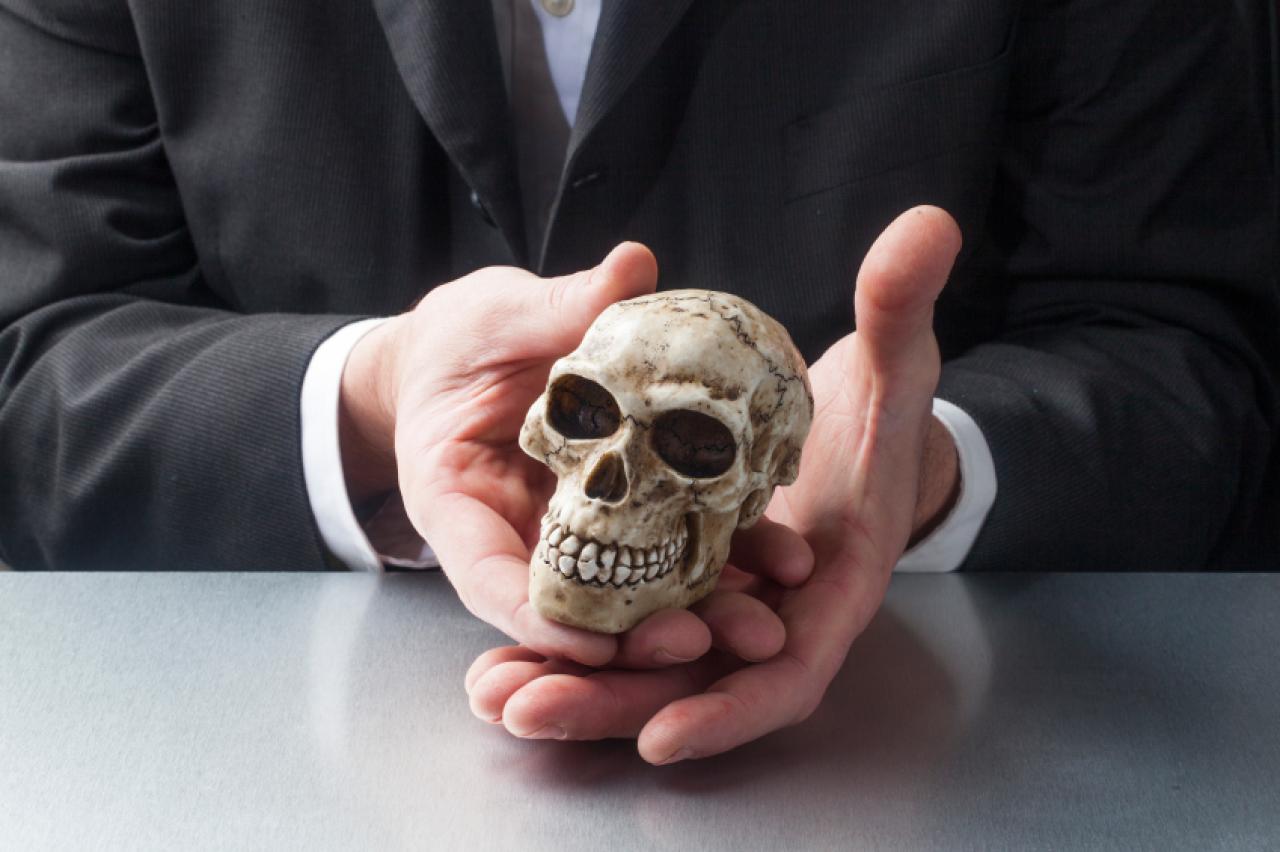
Do not fear death so much, but rather the inadequate life - Bertolt Brecht
Death is the destination we all share, no-one has ever escaped it - Steve Jobs
Death, it’s a fear rarely discussed in the boardroom or around the watercooler. It doesn’t feature in mainstream motivational theories or textbooks on organisational behaviour and motivation. But its alarming reality is ever-present and affects every aspect of our life and action, including the world of work.
Death is the ultimate stealth motivator.
Today most people ‘outsource’ death. They try to sterilise it. In their late 20s and early 30s people work frenetically to get ahead, not realising that life is finite. After 40 people start to become more aware of the time left to live as those close to them start to get sick and die. Eventually a great part of what people do is intricately tied to death. Yet still the subject of death remains taboo.
While some react to the fear of death by refusing to get out of bed and pulling the blanket over their head, the more general response is quite the opposite. In many cases people push all thoughts of death into the back recesses of the mind while continuing to run their lives and business at a frantic pace. Whether people harness this activity in a positive way or runaround like a rat in a maze is an indication of how well they address fears of their inevitable end.
Death Anxiety
Intellectually there is no denying death awaits us all. However, as I examine in Death and the Executive: Encounters with the Stealth Motivator, truly acknowledging it is quite a different thing. By repressing fears of death, people can develop a conscious or unconscious death anxiety. Death anxiety underlies much executive behaviour and action and as this anxiety intensifies, there are three common maladaptive responses:
The manic defence
‘Workaholism’ is a dysfunctional way of transforming death anxiety. For some executives, work becomes their immortality system. Typically workaholics use incessant activity as a way to avoid depressive thoughts and push away lingering subconscious fears of death. Unfortunately in contemporary organisations, work addicts are highly encouraged, supported and compensated for their unhealthy behaviour patterns. But a workaholic environment can contribute to serious organisational problems ranging from low morale, depression, substance abuse, workplace harassment and above-average absenteeism. An executive in one of my programmes driven by anxiety went on an acquisition spree that he was unable to stop. It was one way of helping him feel alive but ultimately affected his company’s economic viability.
A refusal to deal with succession issues
Thinking and talking about succession can be taboo amongst senior executives. They determinedly resist dealing with the big question of ‘life after me’ because it is too anxiety provoking. Meanwhile the organisation suffers and stagnates and productivity stalls because of the leader’s failure to let go.
The edifice complex
Some leaders attempt to avoid mortality by creating a tangible legacy – an organisation, building, award etc in their name. Innumerable examples of this include the pharaohs’ pyramids, the Taj Mahal and Ceausescu’s Palace of the Parliament in Bucharest. There is a psychological parallel between making a mark on the landscape with a building and an exercise of power. Creating a business that will be continued by family members is another obvious way of ensuring some form of immortality. This conscious or subconscious wish lies at the core of many family business dynasties, formed by the illusion that people are not really dead while their names are still spoken.
Building meaning
But keeping busy and building a legacy, don’t have to be dysfunctional. By ensuring there is meaning to their work, executives can give life significance, and ultimately ease the death-fear neurosis.
Being able to work at something that has meaning is a very important part of life and death. By creating meaning for themselves and others in the workplace, executives can alleviate feelings of uselessness that both feeds off and heightens death anxiety. All of us like to know what we can do to make the world a better place for the next generation.
Building meaning could be another way of leaving a legacy which doesn’t involve building structures. This could be rebuilding relationships with children – the most important legacy– or creating a programme or foundation which continues to help people after the initiator is gone.
Arriving at closure
Humans are said to be unique in that we adapt and run our lives in full knowledge not only of beginnings but also of endings. But our anxiety about death causes a great degree of conscious or unconscious discomfort that manifests itself in a wide variety of affective, cognitive, developmental and sociocultural reactions. How we metabolise our anxiety about death determines whether we experience work as meaningful or meaningless. Unresolved death anxiety can result in heightened stress and even psychological burnout.
Death anxiety is something executive coaches should be aware of and something they and senior executives can address by getting people to confront and talk about their fear and by creating an environment where people feel their work has lasting relevance and significance. Ultimately many executives are more afraid of a meaningless existence than death itself.

-
View Comments
(2) -
Anonymous User
What a relevant article , how about letting people know that we need company to go to heaven also.
-
Leave a Comment




Anonymous User
06/03/2014, 05.34 am
"Death, it’s a fear rarely discussed in the boardroom or around the water cooler."
How about on the factory floor or assembly line or farm?